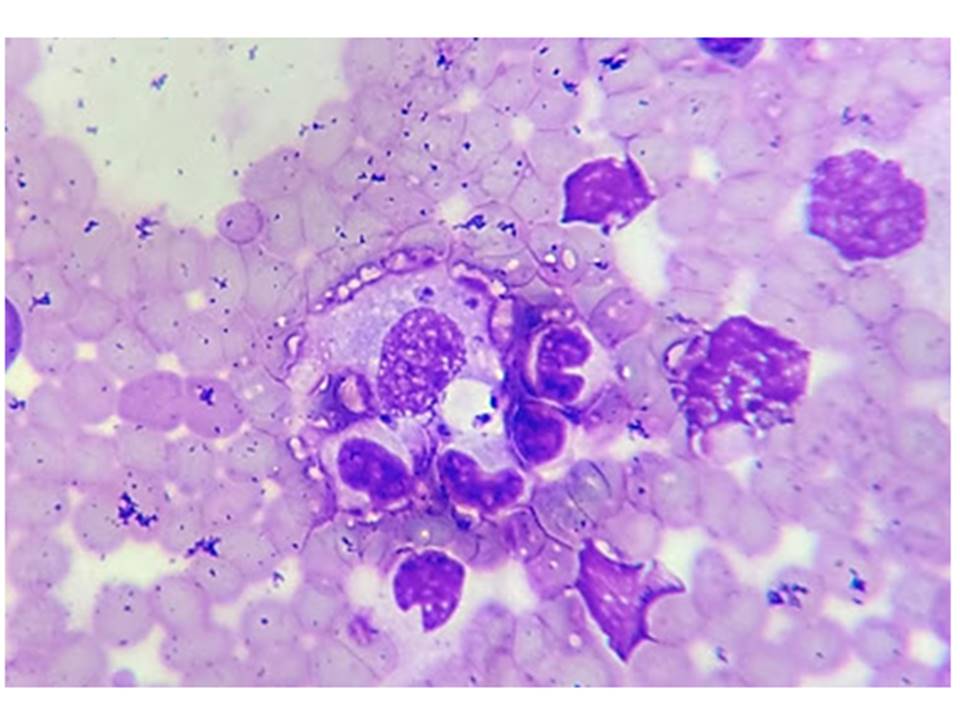Canine visceral leishmaniasis in Rondônia, Brazil: a report of an autochthonous case
DOI:
https://doi.org/10.21708/avb.2021.15.1.9422Resumo
Visceral Leishmaniasis (VL), also known as kala-azar, is a disseminated protozoan infection caused by Leishmania donovani complex. Traditionally the definite diagnosis is made by amastigote detection in the tissue. In August 2015, a female dog, mongrel, older than 2 years, apparently healthy, from the Zoonosis Control Center of the Rolim de Moura/RO, was subjected to the CVL diagnosis was using bone marrow aspirates smears and popliteal lymph nodesmears by Fine-needle aspiration biopsy (FNAB), stained slides with Diff-Quick screened for Leishmania amastigotes by means of direct opticmicroscopic examination (100×). Lymph node and bone marrow aspirates were to investigate the presence of L. infantum DNA by real-time PCR. The popliteal lymph node positive result was showed by observation of typical amastigotes, presenting nucleus and kinetoplast, associated with lymphoblastic proliferation, reactive macrophages, plasmocytes (not rarely Mott cells), eosinophyls and lymphoglandular hyperplasia. Positive bone marrow sample resulted from the observation of amastigotes in monocyte cytoplasm or free on the smear background. The presence of the L. infantum kDNA was detected in lymph node and bone marrow FNAB samples. This research note describes the autochthonous case of CVL recorded in the state of Rondônia (RO), Brazil, non-endemic area for visceral Leishmaniasis. In conclusion, according to the data revealed will be necessary studies including a larger number of animals to elucidate the epidemiological feature of the parasite in Rondônia, Brazil.
Downloads

Downloads
Publicado
Edição
Seção
Licença
Autores que publicam na Acta Veterinaria Brasilica concordam com os seguintes termos: a) Autores mantém os direitos autorais e concedem à revista o direito de primeira publicação, com o trabalho simultaneamente licenciado sob a Licença Creative Commons Attribution que permite o compartilhamento do trabalho com reconhecimento da autoria e publicação inicial nesta revista. b) Autores têm autorização para assumir contratos adicionais separadamente, para distribuição não-exclusiva da versão do trabalho publicada nesta revista (ex.: publicar em repositório institucional ou como capítulo de livro), com reconhecimento de autoria e publicação inicial nesta revista. c) Autores têm permissão e são estimulados a publicar e distribuir seu trabalho online (ex.: em repositórios institucionais ou na sua página pessoal) a qualquer ponto antes ou durante o processo editorial, já que isso pode gerar alterações produtivas, bem como aumentar o impacto e a citação do trabalho publicado (Veja O Efeito do Acesso Livre).


 Esta obra está licenciada com uma Licença
Esta obra está licenciada com uma Licença 